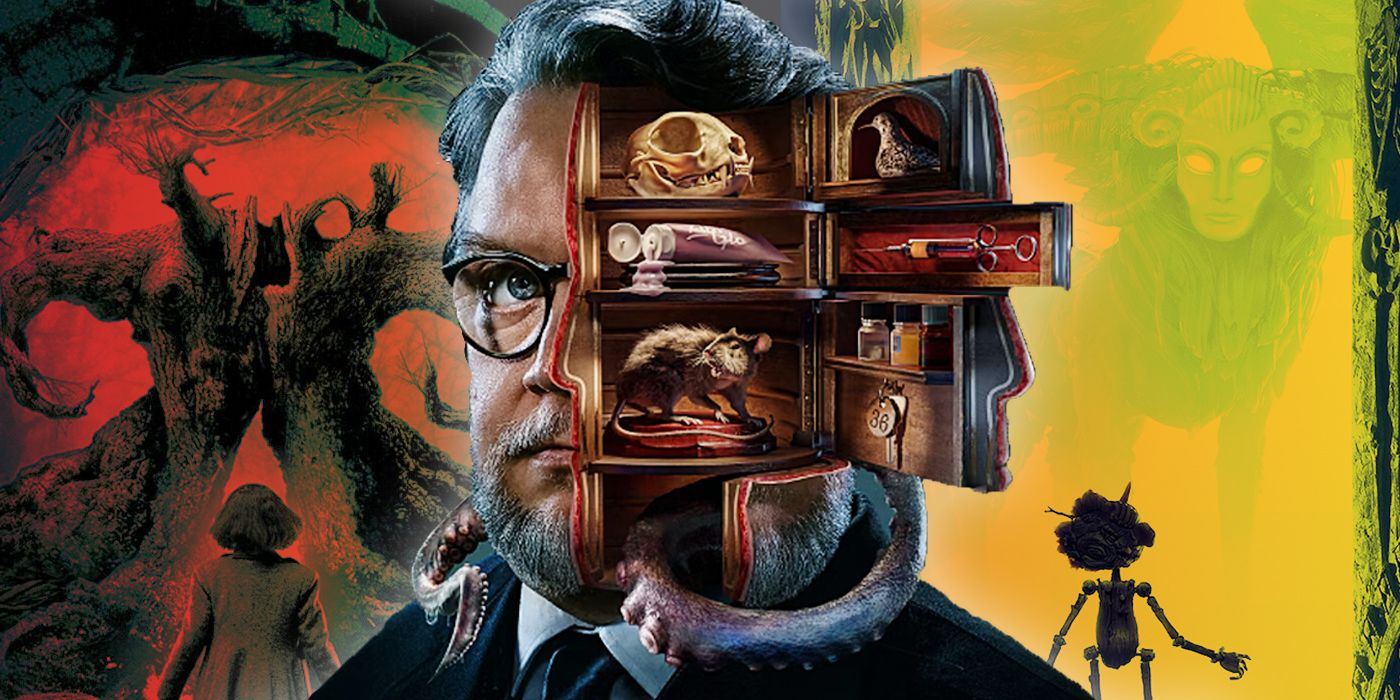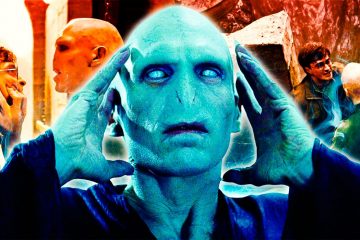One of the things that makes Guillermo Del Toro so exciting as a filmmaker is his capacity to shift in terms of genre and tone. Many of his films feature the exploration of “monsters.” His films often follow themes of finding humanity in the inhuman and shining a light on the more monstrous qualities of people. This is best showcased through his exploration of genre as a filmmaker, his work often experimenting with different tones and styles while retaining core elements. Pacific Rim and The Shape of Water couldn’t be more different in terms of genre and approach, but they both explore the depths of humanity and the intersection of an unnatural force with the real world.Perhaps the most consistent theme of Del Toro’s films is his fascination with fantasy, both for its chaotic beauty and its disruptive freedom. In opposition to this, his films often embrace themes of the innocent resisting in the face of cruel authority — whether that be in the form of bad parents, predatory tricksters, or cruel governments. One of the most compelling of these is the theme of combating fascist ideologies and those that fall into them. It’s a concept most thoroughly explored in his most recent film, the Academy Award-winning Pinnochio — now available from the Criterion Collection — which highlights how powerful of a storytelling tool fantasy can be in the face of real-world dangers like fascism.Dieter is portrayed as a cruel and vicious parental figure, abusing Angel for his failures while lording his wealth (and a potential inheritance) over him to ensure his obedience and assistance. This sense of villainy in authority proves to be the core antagonism found throughout Del Toro’s later films, from the domineering and murderous attitude of Lucille Sharpe (Jessica Chastain) in Crimson Peak to the government’s casually cruel approach to difference in The Shape of Water. These villainous traits are also frequently seen in horrifying familial relationships, with characters like Dieter abusing the next generation into turning out as monstrous as him. The promise of security and leadership at the cost of dignity and freedom also shares core ideals with authoritarian concepts, another frequent target of Del Toro’s films.
One of the things that makes Guillermo Del Toro so exciting as a filmmaker is his capacity to shift in terms of genre and tone. Many of his films feature the exploration of “monsters.” His films often follow themes of finding humanity in the inhuman and shining a light on the more monstrous qualities of people. This is best showcased through his exploration of genre as a filmmaker, his work often experimenting with different tones and styles while retaining core elements. Pacific Rim and The Shape of Water couldn’t be more different in terms of genre and approach, but they both explore the depths of humanity and the intersection of an unnatural force with the real world.
Perhaps the most consistent theme of Del Toro’s films is his fascination with fantasy, both for its chaotic beauty and its disruptive freedom. In opposition to this, his films often embrace themes of the innocent resisting in the face of cruel authority — whether that be in the form of bad parents, predatory tricksters, or cruel governments. One of the most compelling of these is the theme of combating fascist ideologies and those that fall into them. It’s a concept most thoroughly explored in his most recent film, the Academy Award-winning Pinnochio — now available from the Criterion Collection — which highlights how powerful of a storytelling tool fantasy can be in the face of real-world dangers like fascism.
Dieter is portrayed as a cruel and vicious parental figure, abusing Angel for his failures while lording his wealth (and a potential inheritance) over him to ensure his obedience and assistance. This sense of villainy in authority proves to be the core antagonism found throughout Del Toro’s later films, from the domineering and murderous attitude of Lucille Sharpe (Jessica Chastain) in Crimson Peak to the government’s casually cruel approach to difference in The Shape of Water. These villainous traits are also frequently seen in horrifying familial relationships, with characters like Dieter abusing the next generation into turning out as monstrous as him. The promise of security and leadership at the cost of dignity and freedom also shares core ideals with authoritarian concepts, another frequent target of Del Toro’s films.
#Guillermo #Del #Toros #Films #Confront #Real #World #Evil #Imagination
Note:- (Not all news on the site expresses the point of view of the site, but we transmit this news automatically and translate it through programmatic technology on the site and not from a human editor. The content is auto-generated from a syndicated feed.))



